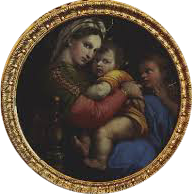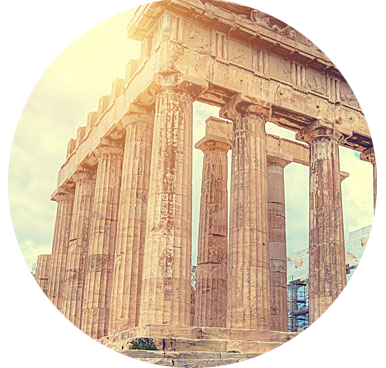Model testing
Peer Educators at work in partner countries: Local Testing of the HEROES peer educational activities applied to Cultural Heritage
At the end of June 2021, the piloting of the peer-educational activities aimed to Secondary School students and included in the HEROES Model successfully closed in each partner country. The Model, based on the principles of the Peer Education and on the Non-Formal approach, is composed by original Guidelines and by a concrete educational proposal useful to design and carry out specific actions focused on the knowledge, protection, promotion and accessibility of cultural heritage, shared at European level. The pilot activities followed the working phase devoted to the Internal Workshops, where teachers and cultural educators explored how the principles of the peer education can be concretely combined with those of cultural heritage education. The testing phase involved Secondary School students, teaching staff and cultural educators from Italy, Greece and Spain so as to locally perform appealing, creative and interactive activities to approach and train the young participants on cultural matters as well as to support them in their personal development and growth. The HEROES educational proposal - developed with the contributions of each partner country - is divided into a series of activities designed to make the students active protagonists of their learning path and the education to cultural heritage an engaging lever to support knowledge, individual development, interculturality and active citizenship.
The peer educational activities tested were:
-
The “Treasure Hunt in Ancient Greece” by EKEDISY, a discovery path across Ancient Greek History and Athens tangible heritage, aimed to learn about different periods of local history and masterpieces;
-
The “Virgen de la Victoria de Málaga” by UMA, an activity focused on the Virgin’s icon between ancient and contemporary art, including: approach, research and study of the Sanctuary and the Malaga Cathedral devoted to the Virgin and the Jorge Rando Museum, where the contemporary reinterpretation of her icon (by Jorge Rando) is guarded;
-
The “Digital Art Ambassadors” by the Uffizi Galleries, consisting in the creation of short videos whose subject has been cultural heritage as a reason of inspiration for the restart of the country, where students declined this peculiar subject starting from works or motifs present in the local museum they chose;
-
The “FIRENZE the Right Way 2.0” by Marco Polo Institute, the historical city center of Florence is the subject of this activity where the students were engaged as “guides” to help visitors and residents to discover the historical, cultural and environmental beauties of the territory, also suggesting them hospitality, leisure and catering services with the aim to raise their awareness on good travelling practices and etiquette to fully appreciate the Florence city center.
All the proposed educational activities provided an effective and fresh resource able to support interest, motivation and participation of the young students in the construction both of their knowledge and themselves.
In each country the testing of the HEROES methodology for cultural heritage education faced the limitations due to the Covid 19 emergency, that strongly impacted on its applying. Unfortunately, the pandemic marked not only the 2020 but also a large part of 2021, significantly affecting all the school and cultural activities. It required to all the involved actors a great effort and organizational commitment but, at the same time, it offered a great opportunity to put themselves out there. The students, teachers and cultural educators accepted the challenge launched by the pandemic by making the most of all the potential offered by ICT. The students attended online lessons for the theoretical preparation to the peer education activities, they did virtual visits to several heritage sites (museums, galleries, external sites) and pushed the research of new ways of expression combining education, digital technologies and cultural heritage. This way, the experimentation activities - beyond what was initially planned - proved to be "actualized in their time" and created the opportunity to appreciate the creative and resilient potential of young people once more. All the involved students responded with interest and passion to the proposed digital activities, but without forgetting to ever reaffirm the essential value of being "in presence". The direct contact with the cultural heritage as well as the relational and emotional dimension of learning remain always - and in any case - the aspect they consider essential for a truly complete path of growth and knowledge.






